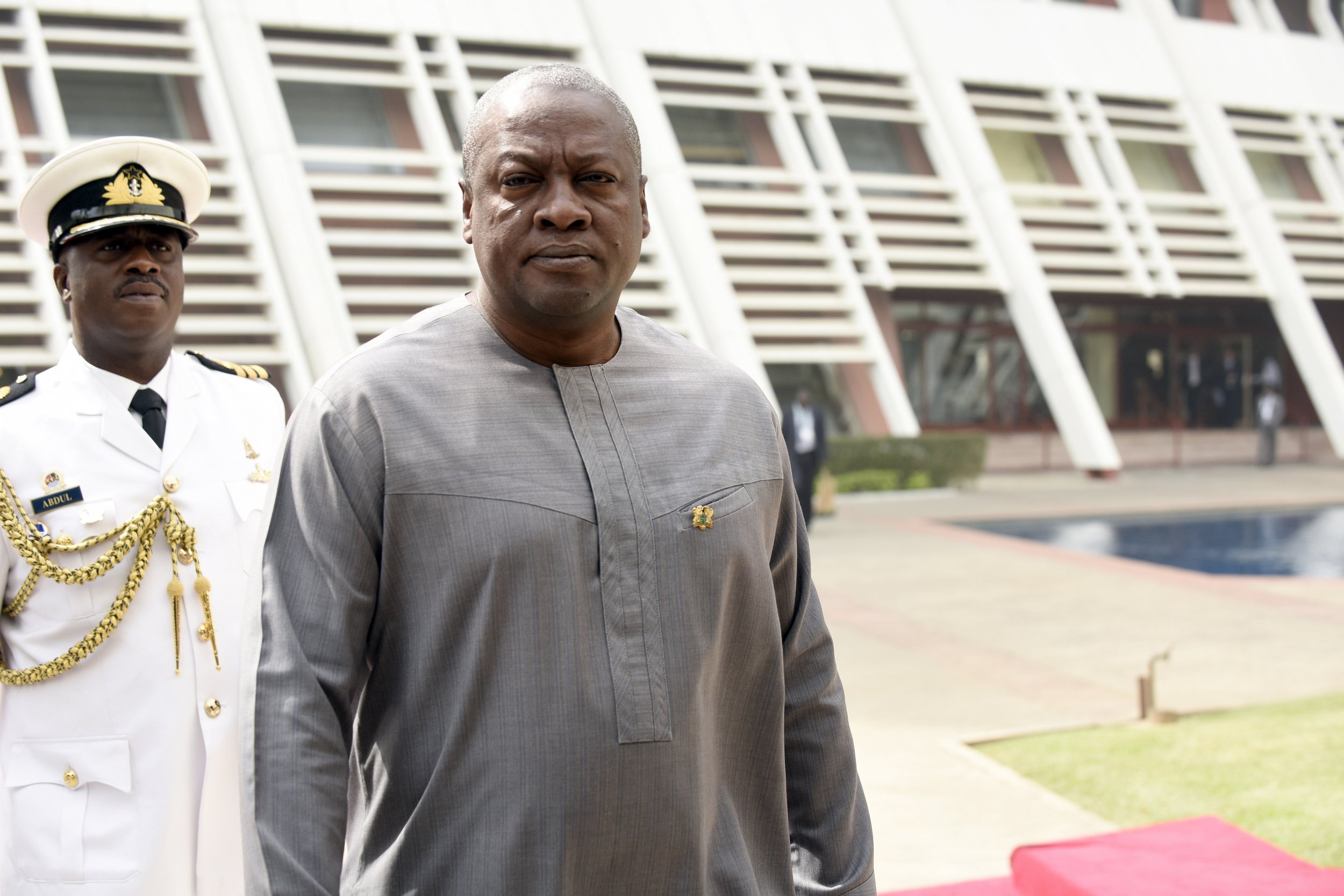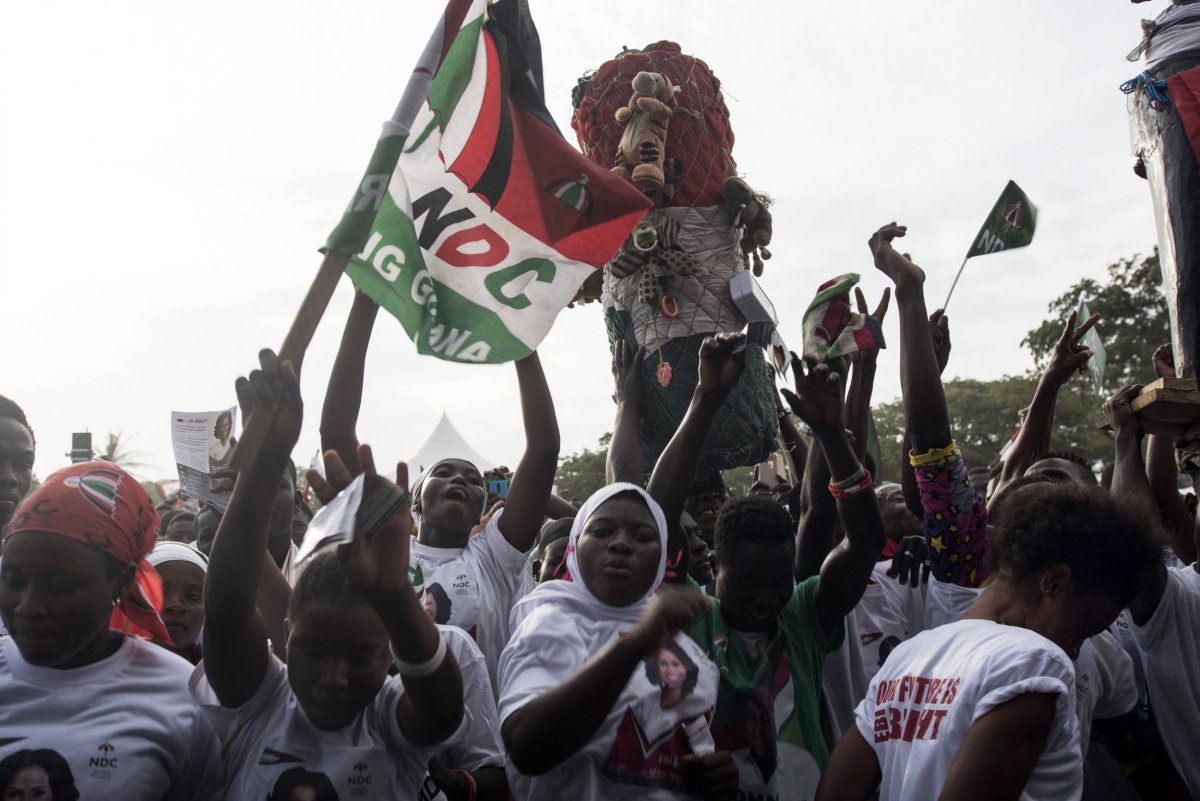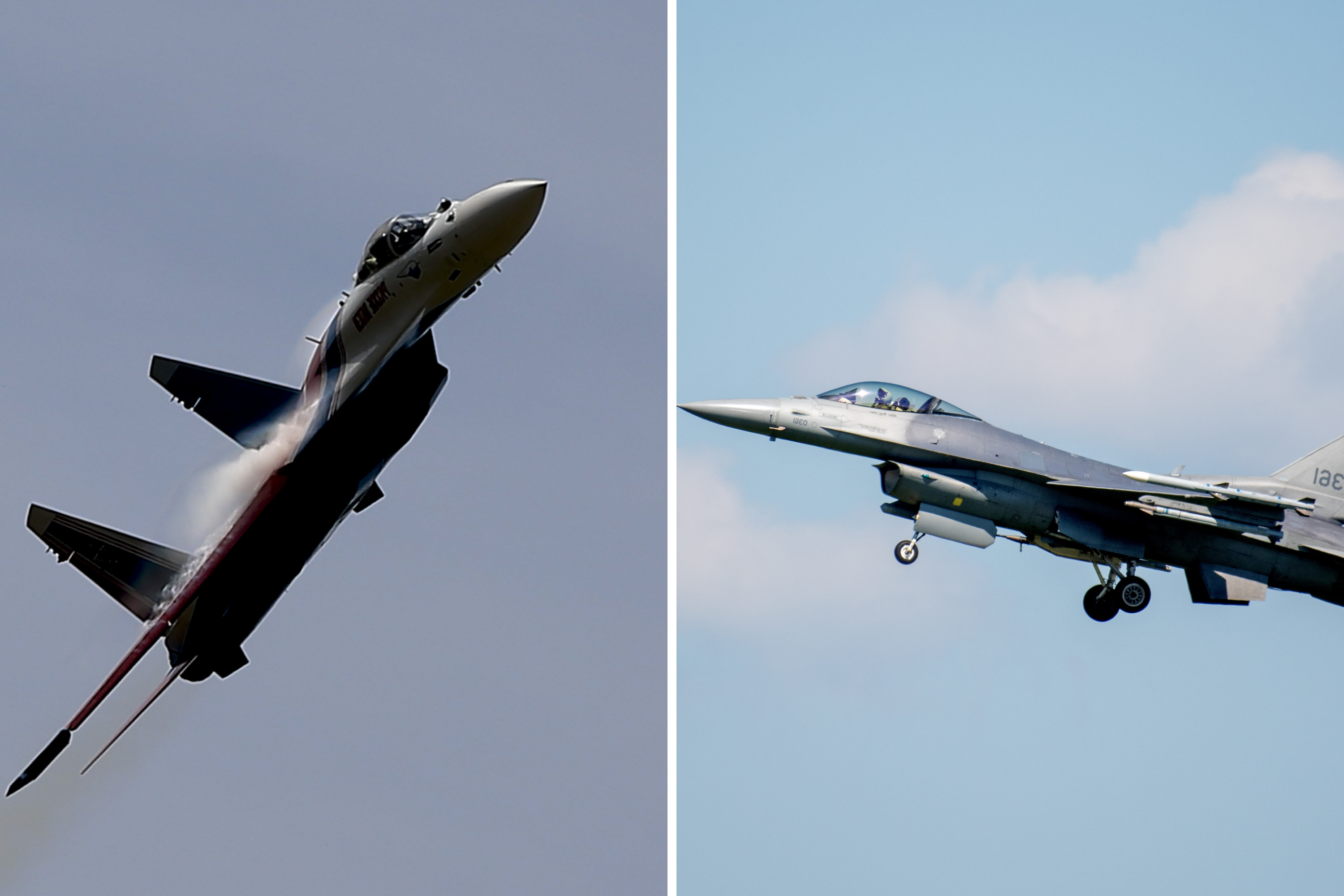
I am proud to be a Ghanaian, and I am proud of the country Ghana is becoming. It is an honor and a privilege to lead a nation of passionate people through the kind of transformation Ghana is now experiencing. As president, through the many programs we have undertaken in the past four years, we have and will continue to change lives. We are in the midst of creating a Ghana that generations of citizens can be proud of.
In the years preceding the 2007-08 global financial crisis, the world saw unprecedented economic growth. At that time, Ghana was under the leadership of the now opposition New Patriotic Party (NPP). Africa was a shining star and economic investment was flowing into the continent as investors looked for emerging growth opportunities. Nigeria had begun its meteoric rise to economic success. Yet the NPP had not been able to translate this economic boom into value for Ghanaians. Our social infrastructure was collapsing, our education system, hospitals and roads had seen limited spending, and our citizens were suffering.
Guided by our late leader John Atta Mills, the National Democratic Congress (NDC) won the 2008 elections at the beginning of a financial crisis considered by many economists to have been the worst since the Great Depression of the 1930s. Yet under the NDC's leadership, Ghana has managed to maintain a growth rate which is the envy of already emerged markets around the world.
As a social democratic party, our focus is on providing our citizens with basic social needs. We knew we had to rebuild our social structures and stimulate economic development through infrastructure development. To do this, we needed to stabilize the economy and ensure that we have the required investment and capital. We have successfully adhered to the conditions of our signing up to an International Monetary Fund (IMF) program and maintained fiscal discipline even in the midst of a re-election campaign. The opposition has tried to convince the world we would lose this discipline during the campaign and spend aggressively on government projects to win this election. We haven't. In fact, during this period we have made many tough decisions and held tightly to the commitment of fiscal discipline.
Ghana has been rewarded for our approach to economic development. This year we have seen the fruits of our labor recognized by global organizations. The IMF, World Bank and all major rating agencies agree that Ghana is due for a prosperous year in 2017. The World Bank is projecting a growth rate of between 7 and 8 percent in 2017, while rating agencies Standard & Poor's, Fitch and Moody's all have a positive outlook for Ghana's economy in 2017. Interest rates are on the decline and we hope to see them reach single digits in the near future. These projections are based on the environment that the NDC government has created to facilitate economic growth and manage the economy in extremely difficult times.
In the past year, we have seen oil prices collapse to their lowest level in decades, a decline in the prices of our major exports including gold and cocoa—all of this significantly affecting Ghana's projected revenue. Yet we have maintained a positive growth rate of around 4 percent. Ghana is now a lower middle-income country and was the first sub-Saharan African country to achieve the Millennium Development Goal of halving extreme poverty ahead of schedule.
Upon these strong foundations, the NDC will focus on aggressive economic growth in the next four years. We will achieve this through several key initiatives, including massive industrialization in direct investments and public-private partnerships (PPPs), as well as supporting the private sector investment in industrialization through incentives and access to capital. We will focus on economic diversification, specifically agricultural diversity, and seek to facilitate and enable not just raw material production but value-added production in the agricultural sector.
Related: Ghana's president draws on Michael Jackson for U.N. address
In addition, we are concentrating our energy on driving yield and quality through massive innovation and mechanization of agriculture. We will begin to see a move from subsistence farming to co-operative farming, thereby enabling economies of scale and driving effective use of the land. As it is, we have already increased the number of hectares being farmed from 3.7 million to 4.1 million between 2010 and 2016, as well as the number of hectares under irrigation from 111,000 to 221,000 during the same period. To effectively grow this sector, we will continue our irrigation program and work hard at bringing young people back into farming, not only providing jobs for them but the necessary energy to facilitate growth of this sector.
One of the major challenges that has faced Ghana is erratic power supply. In 2012, I committed unequivocally to fixing this and today, we have significantly addressed the power challenge, adding 600 megawatts of power in late 2015/ early 2016 and committing to another 1,000 MW plus in the near future. The vision is to become a net exporter of power. Through our energy sector policies, Ghana has achieved energy security for generations to come. There are several plans to expand these solutions in the alternative power supply and cheaper forms of electricity.
Ghana is recognized as the easiest place to do business in West Africa in the latest World Bank report. This recognition further stimulates the flow of foreign direct investment, which was $1.3 billion between January and September, a 100 percent increase on the same period in 2015. In the next four years, we will seek to position Ghana as the springboard for investment into West Africa.
Our approach to infrastructure development facilitates business, which creates jobs and grows the economy. It's a long-term strategy but is critical to the ongoing prosperity of Ghana. In the past four years, we focused significant spend on road, railway and port infrastructure. In the coming years we will continue to do so. With critical mass having been achieved, much of the future development will be through PPPs as well as private sector investments. As a result of Ghana beginning full implementation of a common tariff scheme among West African nations that was signed in 2015, our country will also see the market for its goods and services expanding across the region to more than 300 million people.

Creating a wealthy nation requires education. We have invested heavily in the development of schools and tertiary institutions and will continue to do so. We will be focusing heavily on skills development and conversion of skills to the requirements of the economy. Our focus will be to ensure our youth are actively employed with the right skills for the new economy.
Providing for the healthcare of our citizenry is one of the cornerstones of a social democratic party. We have built and upgraded hospitals and clinics across the length and breadth of the country. We must, and will, do more and in the next four years we will expand this program.
Corruption cripples a country and its development. My government has done more in the fight against corruption than any other government in the history of Ghana. Corruption had become systemically ingrained through generations; under my leadership, however, we have aggressively attacked corruption and are ranked as the seventh-least corrupt African nation by Transparency International. My commitment in the next four years is to keep this as a priority. Through the use of technology and implementation and oversight of effective processes, we will seek to eliminate corruption.
The citizens of Ghana are an amazing people, kind, generous of spirit, warm, welcoming and passionate about their country and their families. They deserve the kind of leadership that works tirelessly to ensure they have access to the necessary services—such as healthcare, education and infrastructure—to ensure they can live fulfilled lives and provide for their families in a country that cares for and respects them.
With our focus on "Putting People First", we will continue to build a Ghana that is a beacon of economic growth and opportunity in the region. A country that is a stable and safe democracy, where our people are at the heart of our economic and social development programs.
John Dramani Mahama is the president of Ghana and is running for re-election in Ghana's presidential election on December 7.
Uncommon Knowledge
Newsweek is committed to challenging conventional wisdom and finding connections in the search for common ground.
Newsweek is committed to challenging conventional wisdom and finding connections in the search for common ground.
About the writer
To read how Newsweek uses AI as a newsroom tool, Click here.








